What is EPR for Battery waste?
EPR for battery waste means extended producer responsibility of a producer for management of battery waste in such a manner to protect human health and environment against any adverse effect, which may result from any substance contained in waste Battery.
Battery waste ( Management ) Rules 2022 cast obligation on producers through EPR which requires all waste batteries to be collected and sent for recycling, refurbishing and its prohibited disposal in landfills & incineration. To meet the EPR obligation a producer may engage themselves or authorize any other entity for collection, recycling or refurbishment of waste batteries. You will know about step-by-step process for EPR Battery Registration.
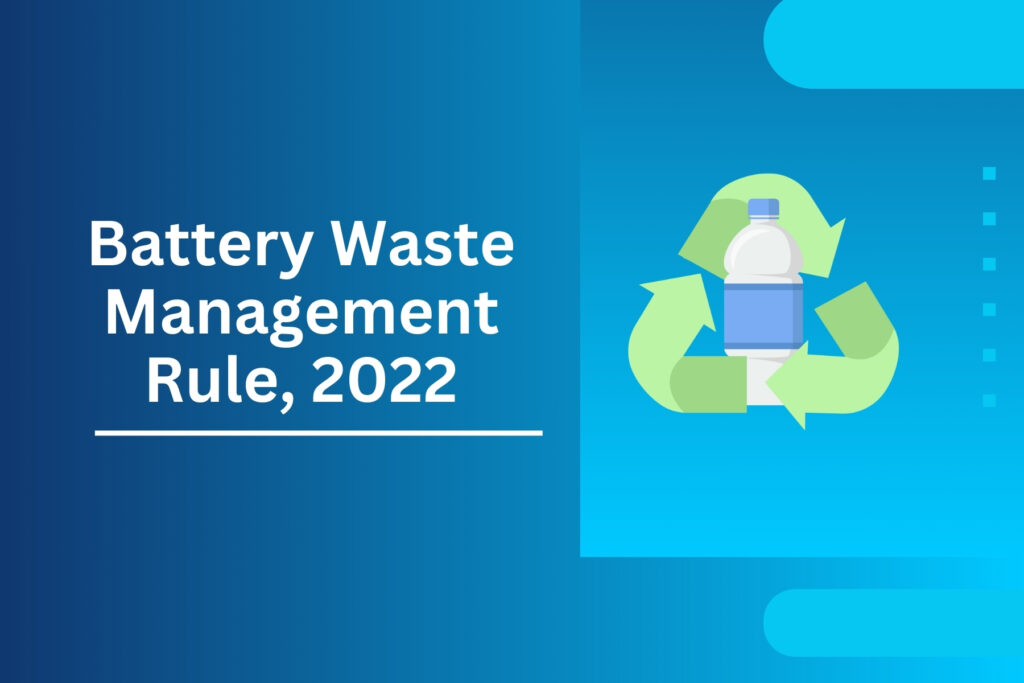
Whether EPR for Batteries registration is a mandatory requirement?
Registration of EPR for batteries is mandatory for all types of batteries, whether for manufacturing or import. A person who import or manufactures batteries are required to obtain EPR registration certificate from CPCB.
Who is required to obtain EPR Battery registration?
Every producer, refurbisher, recycler and importer is required to obtain the EPR Battery authorization from Central pollution control Board (CPCB).
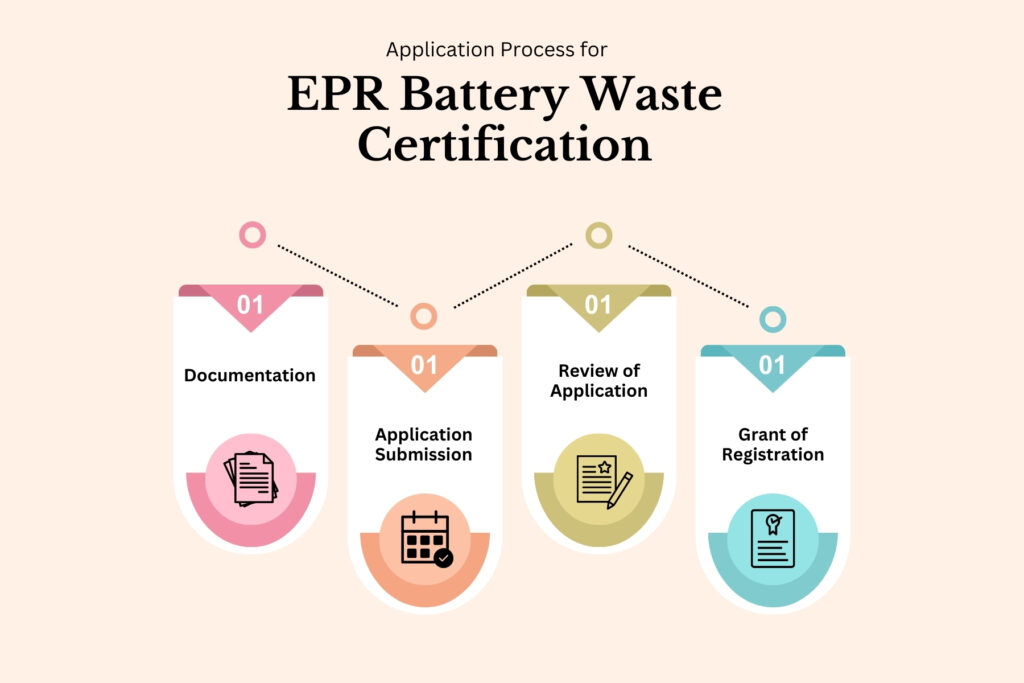
What are the types of batteries as per EPR Battery waste Management Rules?
EPR Battery waste management covers all types of batteries and classified it into four major category
- Automotive battery: – It means any battery used only for automotive starter, lighting or ignition power.
- Electrical Vehicle battery:– It means any battery specifically designed to provide traction to hybrid and electric vehicles for road transport
- Industrial battery: – It means any battery which has been designed for industrial uses, excluding Portable battery, Electrical Vehicle battery, and automotive battery. These may include sealed battery (excluding portable battery ),unsealed battery (excluding automotive Battery) and energy storage system battery
- Portable battery: – It means a battery that is sealed, less than five kilograms, not made for industrial purpose, electrical vehicle or to be used as an automotive battery.
Who is the producer as per EPR for Battery waste Management Rule?
Producer means any Entity who engages in :
- Manufacture and sale of battery including refurbished battery, including in equipment, under its own brand or
- Sale of battery including refurbished battery, including in equipment, under its own brand produced by other manufacturer or suppliers or Import of battery as well as equipment containing battery
What are the obligations of producers and importers of Batteries?
Following are the responsibility of producer as per EPR Battery waste Management Rules :
- Producers shall have the obligation of extended producer responsibility for batteries that they introduce in the market to ensure the attainment of the recycling or refurbishing obligation.
- Producer shall meet the collection and recycling and / or refurbishment targets as mentioned in Schedule II for batteries made available in the market.
- Producer shall provide extended producer Responsibility plan in the Form 1C to central pollution control Board by 30th June of every year for the battery manufactured in the preceding financial year.
- Producer shall file annual return in Form-3 regarding the waste battery collected and recycled or refurbished towards fulfilling obligation under Extended producer responsibility with the CPCB and concerned State pollution control Board in Form 3 by 30 June of the next financial year. The details of the registered recycler from whom the extended producer Responsibility certificates have been procured shall also be provided.
Application process for registration of EPR Battery waste management to CPCB
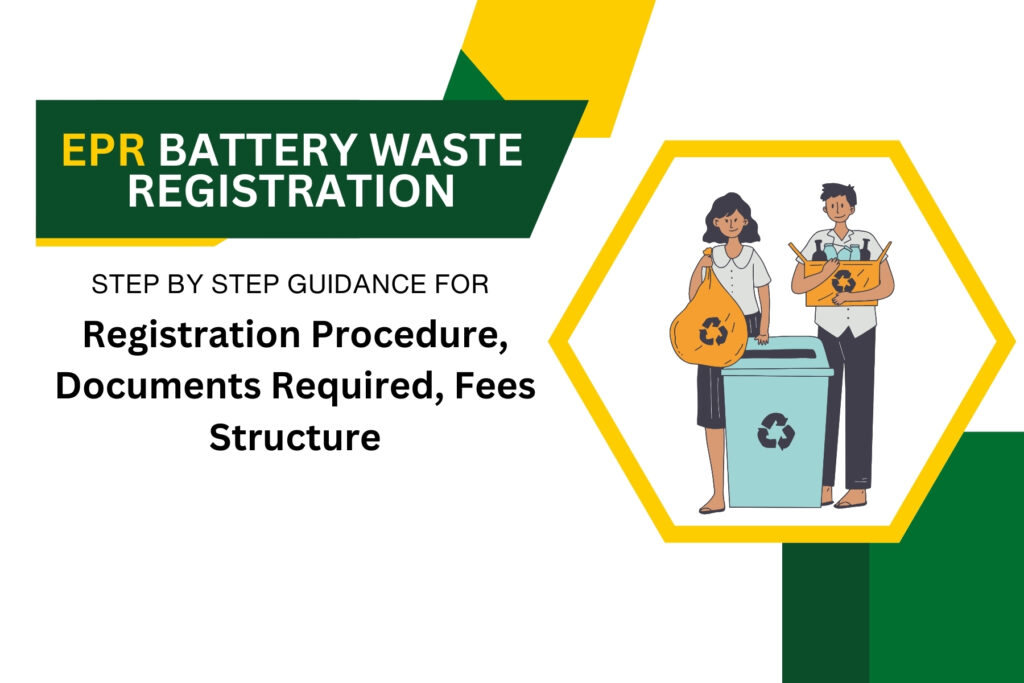
Online Centralized Portal of CPCB is still under development, so applications for registration are currently accepted offline. The steps for submitting an application to the CPCB in offline mode by the Producer or manufacturer are listed below:
Documentation: BWM Registration begins with documentation. Firstly, prepare and compile all the required information and documents before imitating the project for registration as per CPCB norms.
Application submission: Then apply to CPCB for registration by submitting the prescribed application form through the mail and a hardcopy of the application to the Central Pollution Control Board. Along with the application form, submit the necessary documents.
Review of application: After receiving the completed application, CPCB will review it.
Grant of Registration: Following the review of the application, registration will be granted initially for six months. Once the online portal is operational, registration may be renewed for an additional six-month period.
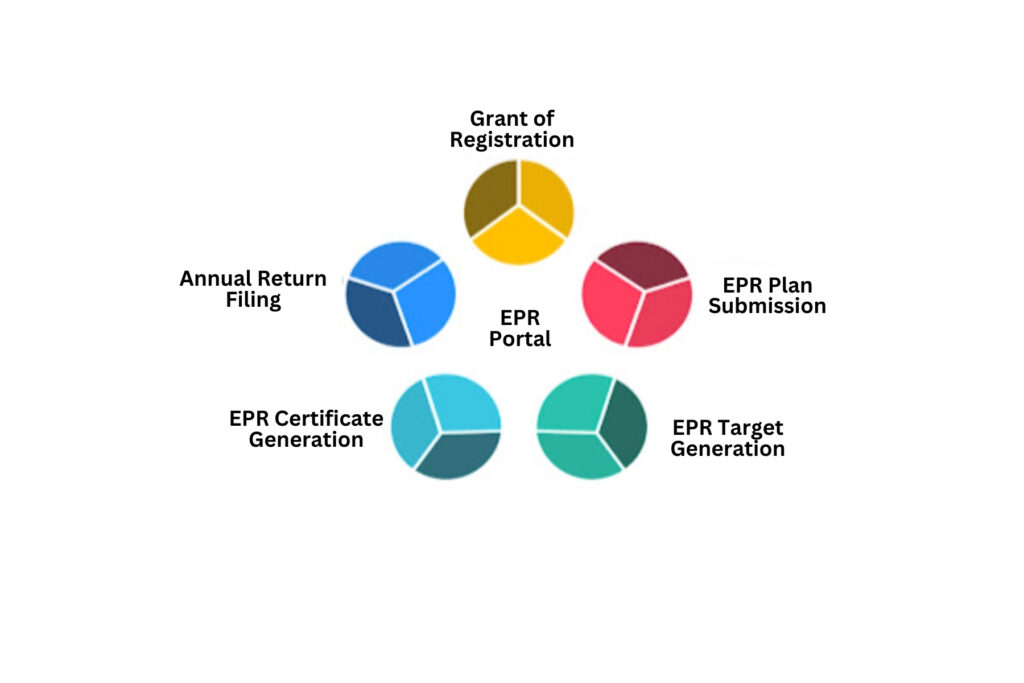
What are the Documents Required for Battery EPR Registration
Following documents are required for EPR registration:
- MOA and AOA of company / partnership deed in case of partnership firm
- GST Certificate of Entity
- Import and Export Code
- Pan Card of company engaged in business
- Aadhar Card of Authorised person
- Email id and Phone No. of Authorised person and Entity
- Valid consent certificate under Hazardous waste authorization
- Ownership proof of business site
- Factory/Trade license
- Valid consent certificate from water and Air board
- CIN no.
- TIN no.
EPR Battery price for EPR registration for Battery waste management is as:
Annual turnover in cr. | EPR Battery Price |
Less than 5 cr. | 10,000 |
Between 5-50 cr. | 20,000 |
More than 50 cr. | 40,000 |
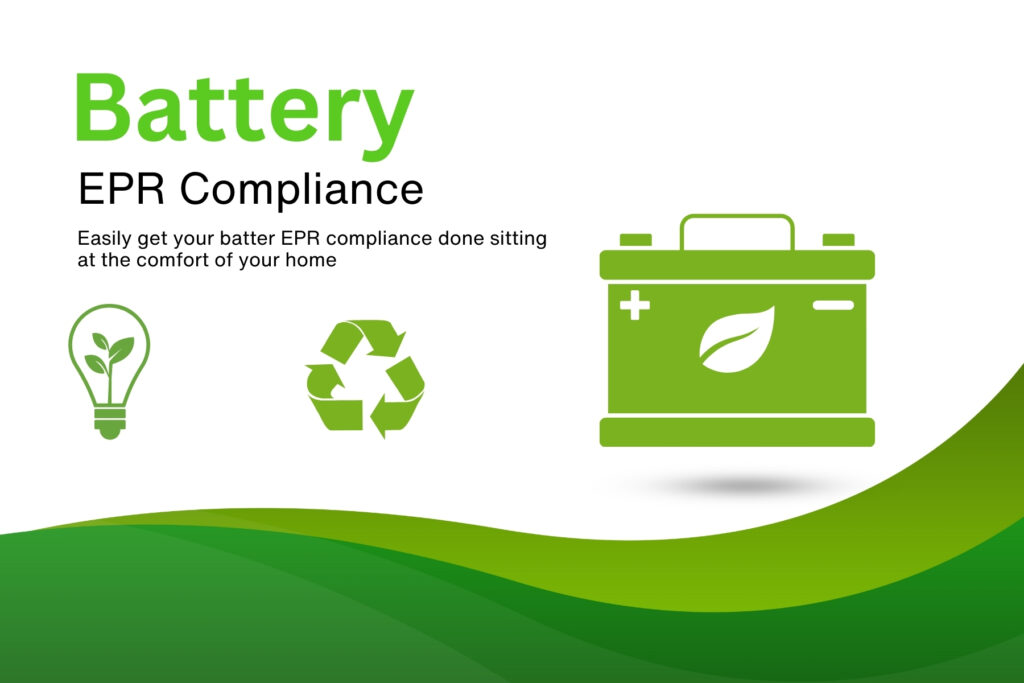
As per EPR for Battery Waste Management, producers of batteries are responsible for managing their waste batteries in an environmentally sound manner. The person or entity involved in the manufacturing of batteries shall be required to register with the CPCB through a centralized online portal to obtain an EPR registration certificate for battery waste management.
999 waste management services is a one-stop shop for all of your compliance requirements. We assist manufacturers, and importers in obtaining certification from various ministries under Indian Government that are required to manufacture, sell, export, or import goods. Our compliance experts will guide you through each step of the process to ensure that everything runs smoothly and on time to meet your compliance requirements.
Frequently asked questions:-
Extended Producer Responsibility means the responsibility of Producers for the environmentally sound management of the product until the end of its life. It is the responsibility of any Producer of Batteries to manage Waste Battery in an environmentally sound manner in order to protect human health. The responsibility lies in protecting the environment from any adverse effects that may result from any substance contained in Waste Battery.
EPR Registration ensures the processing of battery waste by Recycling, reuse, or end-of-life disposal. It is essential because it encourages manufacturers to create environmentally friendly products and reduce pollution.
Central pollution control board issues EPR registration certificates for Battery Waste Management. The Producer must register through CPCB Portal.
To ensure environmentally sound waste battery management, the Ministry of Environment, Forests, and Climate Changes issued the Battery Waste Management Rules, 2022. According to Rule 4 of the BWM Rules 2022, every Producer and person or entity involved in the manufacture of batteries shall be required to register with the CPCB through a centralized online portal. Battery producers are responsible for collecting, recycling, and refurbishing waste batteries and using recovered materials from waste to make new batteries.
Extended producer responsibility (EPR) refers to a producer’s obligation to manage waste batteries in an environmentally sound manner. EPR registration is the process by which a producer of EPR registers with the Central Pollution Control Board.
Under EPR for BWM all battery kinds are covered, including industrial, portable, electric car, and automotive batteries.
Battery waste, referred to in the Battery Waste Management Regulations 2022, is defined as batteries that have been used, thrown away, or that have reached the end of their useful lives, along with any consumable parts that may or may not be hazardous or whose expiration dates have passed.
